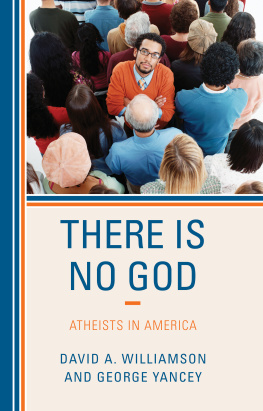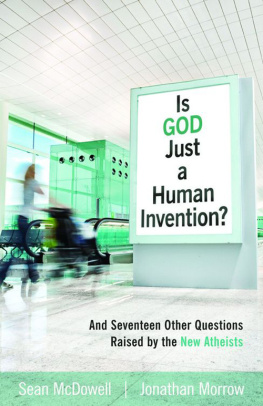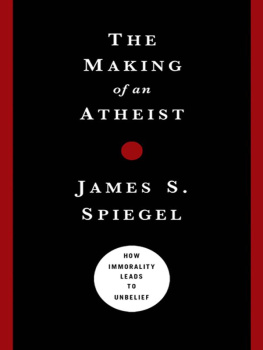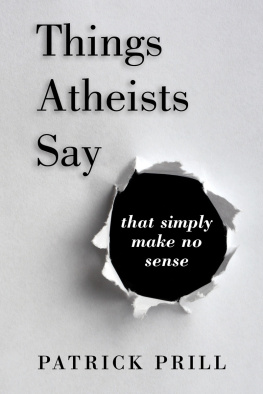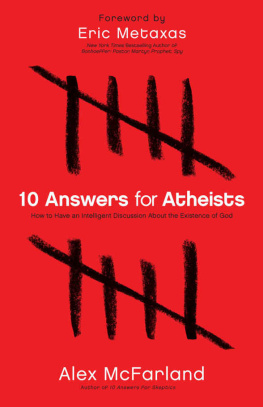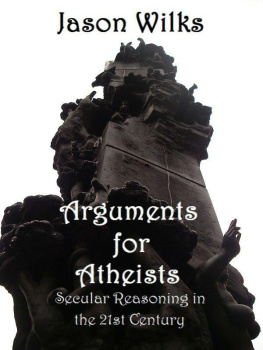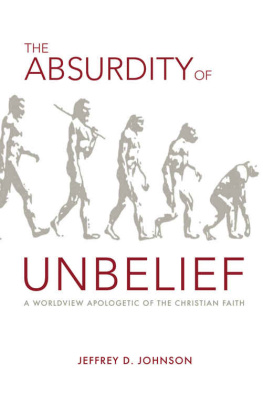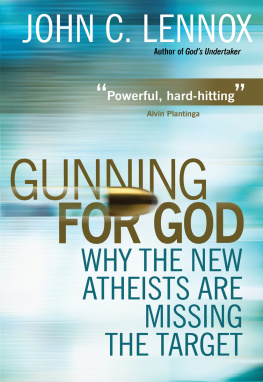1

Introducing the New Atheists
Phillip E. Johnson
In 2006 and 2007, newspapers and magazines in America began taking notice of an extraordinary phenomenon. Although polling data and election results seemed to confirm that the people of the United States are overwhelmingly Christians in a traditional sense, books by a new breed of aggressive scientific atheists were recording astonishingly high sales, suggesting that even the Bible believers are attracted by a vigorous advocacy of atheism.
Up to the present time, scientific authorities have thought that the only way to persuade the American public to accept the Darwinian theory of evolution is to reassure them that a fully naturalistic account of the history of life poses no threat to a religious belief in the existence of God. Only fundamentalist varieties of religion that ought to be discarded anyway are threatened by evolutionary science, these authorities say.
The new breed of scientific atheists dismisses these reassurances as dishonest, reflecting a cowardly spirit of appeasement. Instead of appeasing the forces of unreason, why not go to the root of the problem and show that the very concept of a supernatural being or force is delusional, and leads only to harm. These atheists are exhilarated by the unbroken record of success they think science has achieved in explaining the world without allowing room for God, and by their own success in selling books and gathering publicity.
Ebullient in one way, they are maddened by the influence of conservative Christians in American public affairs and by the persistence of public skepticism toward the Darwinian theory and its worldview. Worried by this widespread skepticism and its recent spread from America to the once securely post-Christian nations of Europe, they have decided to go on the attack to demolish what Dawkins calls the God delusion before it can do still more damage to their program of persuading the world to embrace a scientific rationalism based on the assumption that nature is all that exists, and therefore that God is an illusion that rationality must discard. To that end, they are entering the public arena with the gloves off, determined to complete the demolition of theism by aggressively pressing their claim that belief in a supernatural creator is both absurd and evil, even if this bold stance offends evolution-friendly liberal Christians.
Asking the Right Questions
Americans know that some trend or conflict is really big news when they see it on the cover of Time magazine. Time s cover story for the November 13, 2006, issue was titled Science vs. God. It featured a spirited debate over Gods existence between the vehemently atheist biologist Richard Dawkins and the Christian geneticist Francis Collins, director of the U.S. governments successful project to sequence the human genome.
The debate interested me less for what the debaters said than for the way the magazines editors framed the subject, and why they thought it worthy of a Time cover in late 2006. Since Dawkins says that science and religion (defined as belief in God) are antithetical, and Collins says they are not, for Time to define the subject as God versus science was to cast Dawkins in the role of science pursuing a retreating deity. A debate billed as Dawkins vs. God would have given God a much less formidable opponent, and so might have made the cover less likely to attract attention.
I suspect that most of the scientists who saw the magazine winced at the prospect that Richard Dawkins speaks for science, but that doesnt necessarily imply that they will demand that Time correct the misunderstanding, so much of the public may go on assuming that Dawkins actually does speak for science because of what they read on the cover of Time .
Time s writer David Van Biema introduced the debate by explaining that the live issue today is not whether Darwinian evolution can withstand the criticisms of creationists but whether religion (defined for this occasion as belief in God) can survive the progress of science. Today, wrote Van Biema, the anti-religion position is being promoted with increasing insistence by scientists angered by the intelligent design movement and excited, perhaps intoxicated, by their disciplines increasing ability to map, quantify and change the nature of human experience.
When the debate proper started, Dawkins stated that Darwins theory of evolution by natural selection does much more than simply contradict the Genesis story. In addition to that, it refutes the strongest argument from the physical world for the existence of God: the argument from design. This argument, in Dawkinss words, is that living things are so beautiful and elegant and so apparently purposeful, they could only have been made by an intelligent designer. Dawkins thinks that Darwin forever discredited the argument from design by proving that the appearance of design is actually due to
gradual, incremental natural improvements starting from very simple beginnings and working up step by tiny incremental step to more complexity, more elegance, and more adaptive perfection. Each step is not too improbable for us to countenance, but when you add them up cumulatively over millions of years, you get these monsters of improbability, like the human brain and the rain forest.
Darwins success should warn us against ever assuming that because something is complicated, God must have done it.
But is Darwins success really so all-encompassing? The human brain and the rain forest certainly exist, but that either was created by an accumulation of random errors in copying DNA might be doubted, if the claim were thought to require experimental verification rather than merely the support of a consensus of biologists today. (See chapter four on The Darwinian Worldview for more on this subject.)
Collins did not dispute Dawkins on Darwins success, but raised the possibility that God could have activated evolution, not controlling it, but foreseeing that it would turn out as he wished. Dawkins shot back that this explanation is implausible: If God wanted to create humans, it would be slightly odd that he should choose the extraordinarily roundabout way of waiting for 10 billion years before life got started and then waiting for another 4 billion years until you got human beings capable of worshipping and sinning and all the other things religious people are interested in.
Collins interjected that, if God did not wish to make his existence obvious to us, then it would have been sensible for him to use the mechanism of evolution without posting obvious road signs to reveal his role in creation.
If Dawkins were ever to become a Christian, he would surely be a young-earth creationist. The possibility is admittedly remote, but perhaps such a Damascus Road turnabout is not entirely out of the question. Because Dawkins has over the last several decades been drawn so obsessively to denouncing belief in God, despite the urging of his scientific peers to remain aloof from the subject as they do, some readers of Dawkins think they see signs that something about God troubles his spirit. One thing we know is that Dawkins is not overreacting, as some have imagined, to an unpleasant childhood experience with an adult who tried to bully him to conform to conventional religion, because he very convincingly denies ever having had such an experience. (To confirm this denial, read page 11 of The God Delusion .) That leaves me to wonder just what has produced an anger toward God that seems too passionate to proceed from intellectual considerations alone.
Following their brief exchange over evolution, the Time debate turned to the origin of the universe. Collins employed what cosmologists call the fine-tuning argument. Dawkins did not dispute Collinss suggestion that, if the six or more basic physical characteristics of our universe had varied even slightly, life would not exist. Collins reasoned from this premise that if you are willing to consider the possibility of a designer, this [that a designer fine tuned the universe for life] becomes a rather plausible explanation.


